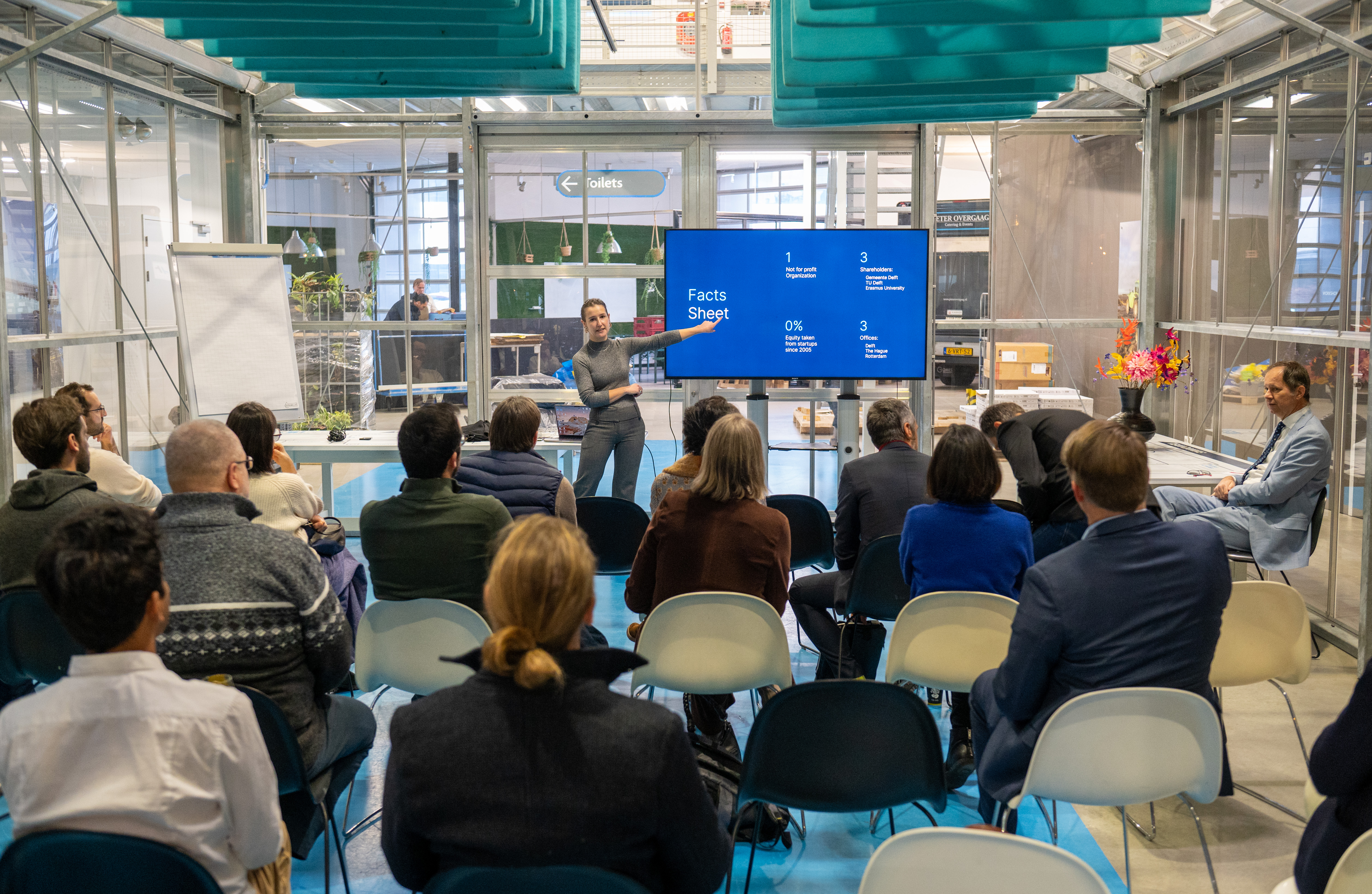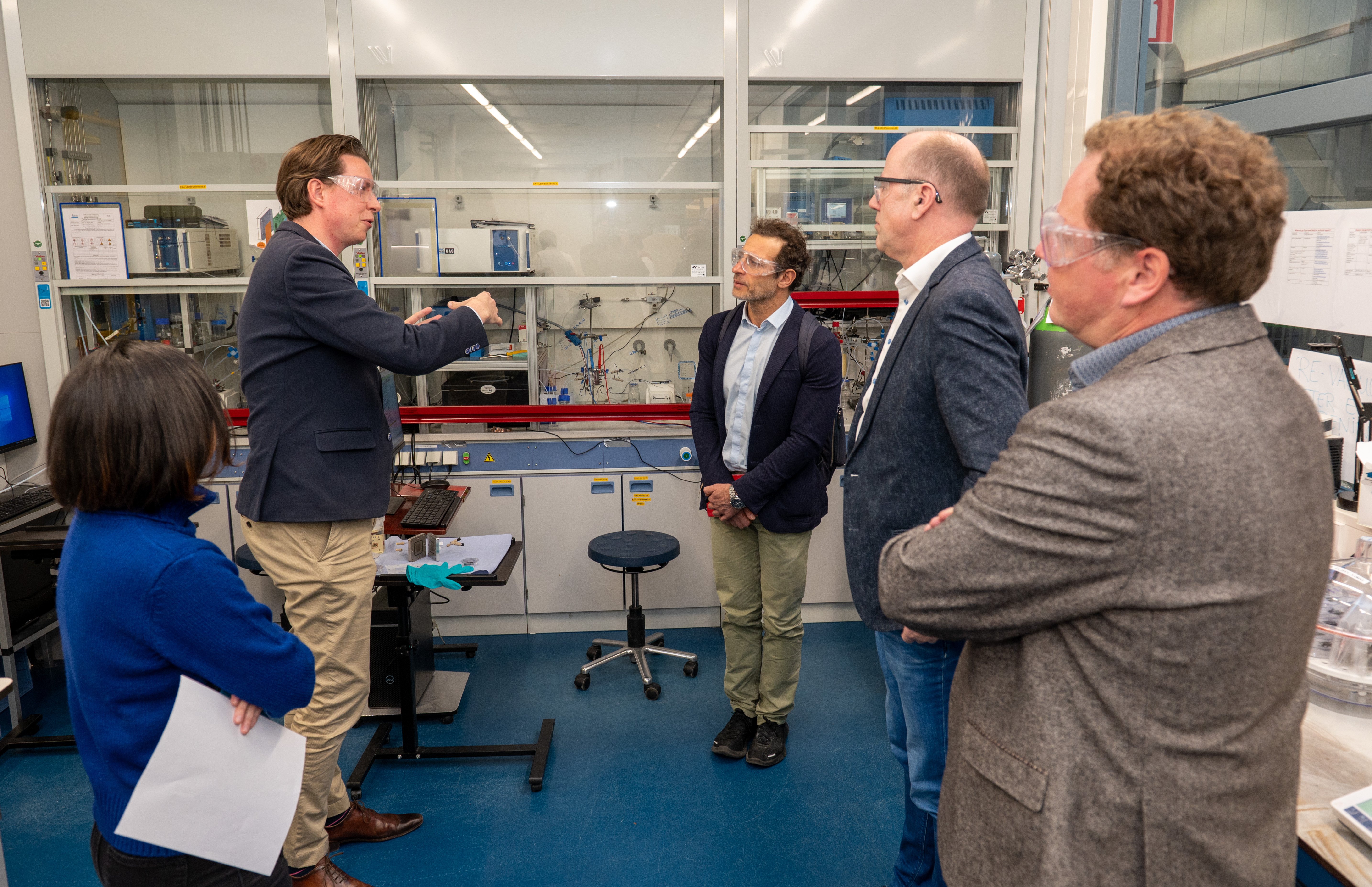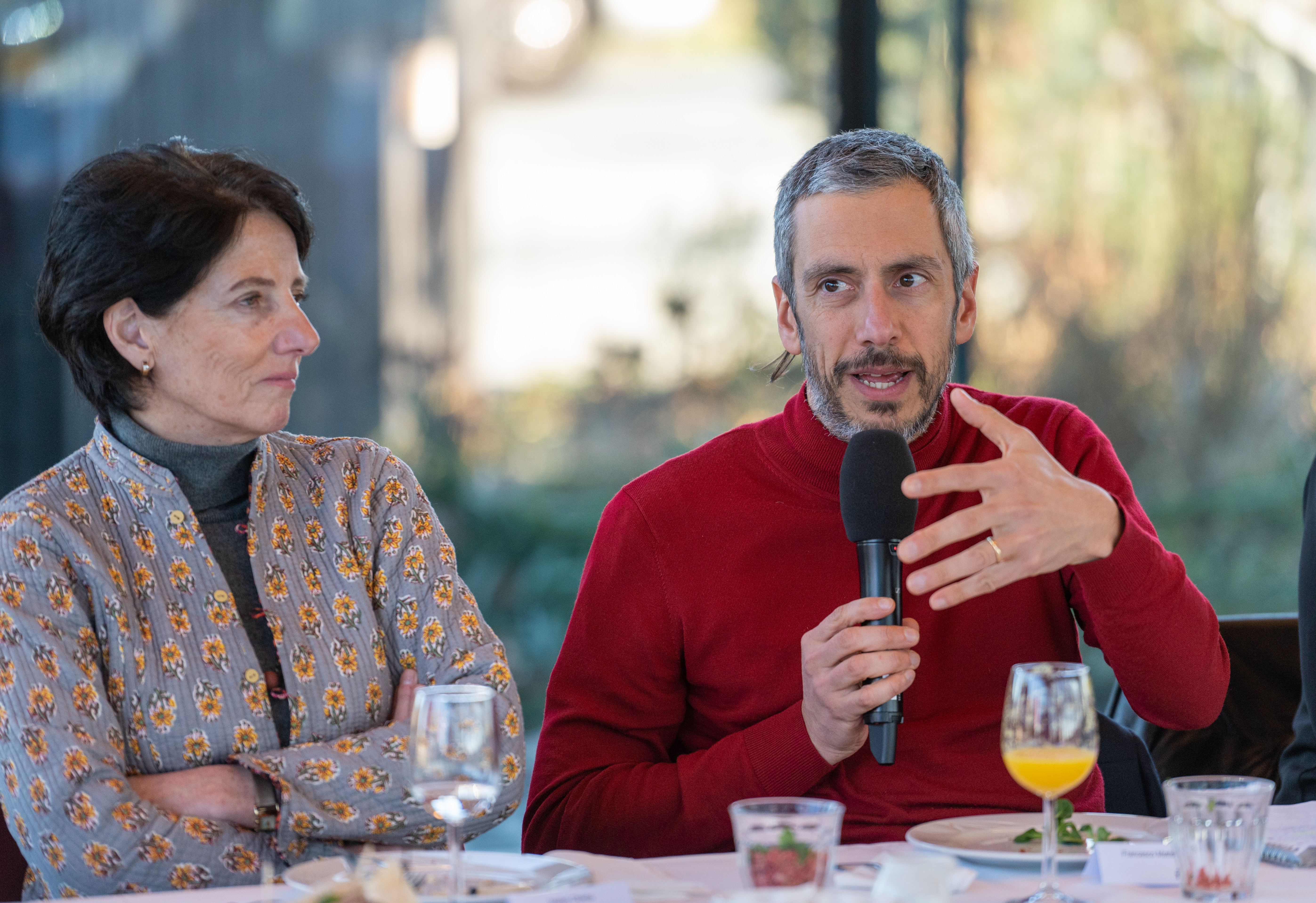A delegation from the European Innovation Council (EIC) visited the TU Delft Campus on Wednesday. The visit focused on the innovation ecosystem around TU Delft and the way in which new, promising technology is brought to the market. Collaboration is crucial, was the message.
The visit started in the Co-Creation Centre of The Green Village, the field lab for sustainable innovation. After word of welcome from Servaas Duterloo and Jaga Schreiber from the Innovation & Impact Centre, the EIC Programme Managers received an explanation about how TU Delft fosters technology development and accelerates innovation around major social challenges such as energy transition, climate, biotech, climate, health & tech and quantum technology.
Intensive collaboration
For example, Henri Werij (dean of the Faculty of Aerospace Engineering) emphasised that sustainable aviation can only be achieved through intensive collaboration, both between faculties through the multidisciplinary scientific institutes and with the various external partners involved, such as airlines. The Aerospace Innovation Hub and Flying Vision, but also the e-Refinery Institute, play an important role.
There were also presentations by Paulien Herder (dean of the Faculty of Applied Sciences), who explained how EIC funds have been used within her faculty for quantum nanoscience, among other things. Justin Kok, Tech Scout at Delft Enterprises, explained how promising scientific research is converted into business via spin-offs. Delft Enterprises is the holding company with which TU Delft participates and invests in spin-offs.
Innovation ecosystem
Anne-Lize Hoftijzer (manager TU Delft Campus) explained how the innovation ecosystem around TU Delft is structured. More than 250 companies are now located here, with more than 5.5 thousand employees. Together with TU Delft, the other knowledge institutions and unique field labs, it functions as a flywheel for innovation. Unique for the Netherlands.
The EIC program managers present then received tailored thematic visits to several faculties and field labs for a presentation by scientists involved in their field (medtech, AI-in health, architecture, process energy, green materials, quantum, space engineering), followed by a joint visit to the YES!Delft incubator. This was followed by presentations from startups that have received funding from EIC, such as Maeve Aerospace, Plense Technologies and Soundcell.
Driving game-changing innovations
The EIC is the innovation program of the European Commission. It has a budget of more than 10 billion euros to support 'game-changing' innovations. Within the EU, very good scientific deep-tech research is taking place, but the transfer of this technology to the market of this can be improved. The EIC has three programs for this: EIC Accelerator, EIC Pathfinder and EIC Transition. About 1 billion euros is available for this year. TU Delft is a beneficiary in EIC 20 projects.
The visit was very useful and inspiring to see what top universities are doing when it comes to driving innovation, said Anne-Marie Sassen of the EIC. It also provides good insights into identifying future challenges and makes visible the regulatory challenges that promising innovation processes may encounter. The EIC in turn uses this information to influence EU policy. In this way, all barriers between groundbreaking innovations and the market are broken down.



